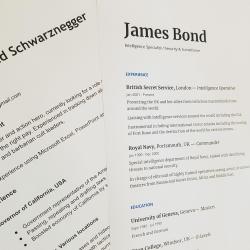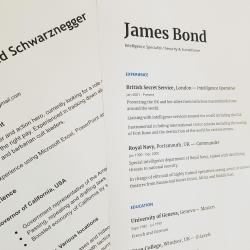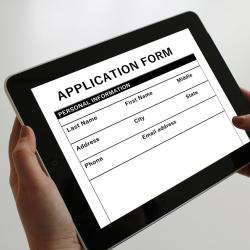How to Highlight Your Skills Effectively on Your Resume
Crafting a resume that stands out in today's competitive job market can seem daunting, but one of the most effective strategies is to highlight your skills in a way that captures the attention of potential employers. Here’s a comprehensive guide on how to showcase your skills effectively, whether you’re an experienced professional, a recent graduate, or switching career fields.
1. Identify Relevant Skills
A. Understand the Job Description
Before you start, carefully read the job description to identify the skills the employer is seeking. Highlight keywords related to skills, tasks, and responsibilities that frequently appear. This will give you a baseline for tailoring your resume to the specific role.
B. Hard Skills vs. Soft Skills
Hard skills are job-specific and can be measured, such as proficiency in a software program or language skills. Soft skills are interpersonal attributes like communication and teamwork. Employers often value a combination of both, so it’s important to balance them on your resume.
2. Tailor Your Resume
A. Customize for Each Application
Avoid using a one-size-fits-all resume. Customize your resume for each job by aligning your skills with those mentioned in the job description. This not only makes it easier for hiring managers to see that you fit the role but also helps your application get through any automated screening systems.
B. Use the Right Keywords
Incorporate specific keywords from the job description when listing your skills. This is crucial for passing Applicant Tracking Systems (ATS) which scan resumes for relevant keywords before a human ever sees them.
3. Structure Your Skills Section
A. Standalone Skills Section
Create a dedicated section labeled “Skills” on your resume where you can list your relevant abilities. For roles that require many specialized skills, consider breaking them into categories, such as “Technical Skills,” “Language Skills,” or “Leadership Skills.”
B. Integrated with Work Experience
Highlighting your skills within the context of your work history can provide concrete examples of how you’ve used them. Use bullet points to succinctly describe achievements and activities in previous roles that required your skills.
C. Highlight Soft Skills Wisely
While you might include some soft skills in your dedicated skills section, it’s often more effective to demonstrate them through examples. For instance, instead of just listing “leadership,” discuss a time when you successfully led a team project.
4. Be Specific and Quantify
A. Use Action Verbs
Start each bullet point or sentence with a strong action verb to convey confidence. Words like “achieved,” “developed,” “implemented,” or “led” are powerful and direct.
B. Quantify Achievements
Whenever possible, quantify your achievements to provide context and scale. For instance:
- “Increased sales by 20% by implementing a customer feedback loop.”
- “Reduced project delivery time by 15% by reorganizing the team workflow.”
These examples demonstrate not just your skills but the results they produced.
5. Proofread and Format
A. Consistent and Clean Formatting
Ensure your resume is easy to read with a consistent format. Use clear headings, bullet points, and enough white space. Choose a professional font and align with industry standards.
B. Proofread Thoroughly
Errors in spelling or grammar can detract from your credibility. Proofread your resume multiple times, or have someone else review it, to ensure it’s error-free.
6. Continuous Update and Improvement
A. Keep Skills Current
As you acquire new skills or gain new experience, update your resume immediately. This ensures you’re always ready to seize new opportunities.
B. Seek Feedback
Regularly seek feedback on your resume from mentors, peers, or professional services. Fresh eyes can often spot areas for improvement you might have missed.
By following these steps, you can effectively highlight your skills on your resume, making you a compelling candidate for potential employers. Remember, your resume is not just a list of skills—it's a strategic tool that communicates your value and fit for the role you're pursuing. Building and refining it requires time and effort, but doing so significantly enhances your chances of landing your desired job.






















